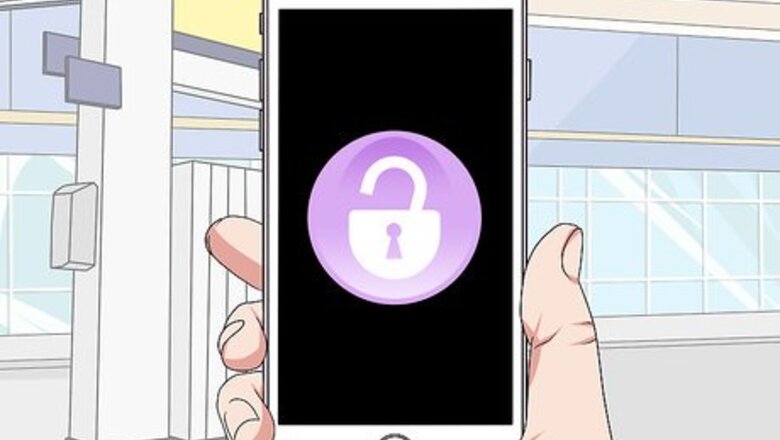
views
Through Your Carrier
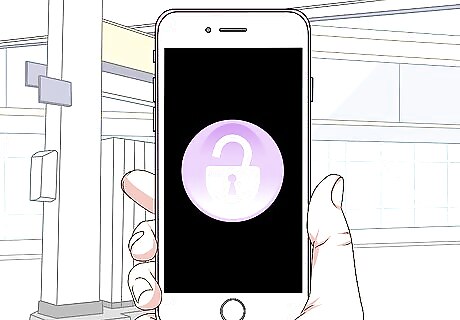
Check to see if your phone is already unlocked. Many phones, such as 4G LTE phones from Verizon or the bulk of Androids, are carrier unlocked as soon as you purchase them. Additionally, many carriers will unlock a phone for you as soon as you meet the unlock criteria. If you purchased a phone from eBay or a similar distributor, there's a decent chance that your phone is already carrier unlocked.

Verify that you meet your carrier's unlocking criteria. In addition to being an unlock-compatible phone that's licensed to your carrier (e.g., if it's a Verizon phone, you have to unlock it through Verizon), you must meet the following criteria for the following carriers: Verizon - Verizon doesn't lock most modern phones. If your phone is locked for some reason, you can call Verizon customer support to have them unlock your phone for you. Sprint - Your phone must be active for at least 50 days, and you must own the phone (e.g., it has to be paid in full). The phone also must not be reported as lost, stolen, blocked, or involved in illegal activity. AT&T - Your phone must not be reported to AT&T as lost, stolen, blocked, or involved in illegal activity. Your phone also must have been completely paid off, and it must have been on the AT&T network for a minimum of 60 days (prepaid phones have to be active for at least 6 months instead). T-Mobile - Your phone must not be reported to T-Mobile as lost, stolen, or blocked, your account must be up-to-date with payments, and you must not have requested more than two unlock codes from T-Mobile in the last 12 months. If your phone is pre-paid, you must have had the phone active for a year, while phones on payment plans must have been on the plan for at least 40 days. If you're in the military and you need to unlock your phone due to deployment overseas, you can provide any carrier with your paperwork and ask them to unlock your phone on the spot—most carriers have a military policy, and in some places they're legally obligated to unlock your phone anyway.
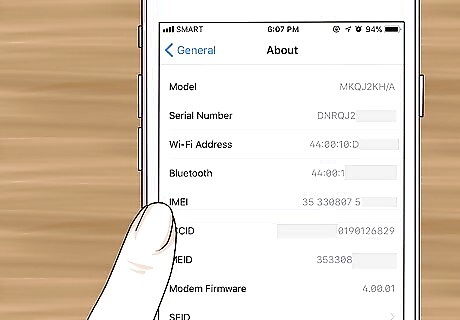
Check your phone's IMEI number. You'll need to provide your carrier with your phone's IMEI (or, in the case of some CDMA phones, MEID) number to unlock the phone. To find the IMEI number: iPhone - Open Settings, scroll down and tap General, tap About, and find the "IMEI", "MEID", or "ESN" number. Android - Open Settings, scroll down and tap About phone, tap Status, and find the "IMEI", "MEID", or "ESN" phone.
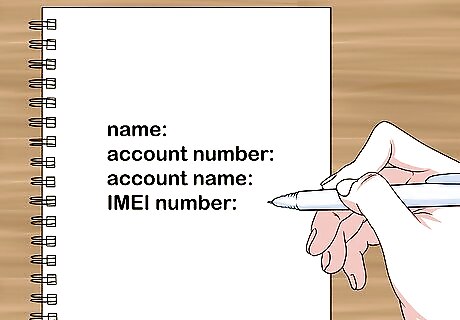
Make sure that you have your account information handy. You'll need to provide your carrier with your account details, so gather everything that you need to do so before contacting your carrier.

Retrieve your unlock code. Call your carrier, then request a phone unlock and provide them with any information for which they ask. As long as you're eligible to unlock your phone, your carrier will provide you with a several-digit code that you can use to unlock your phone. For some carriers, you can visit the carrier website, sign in, and enter your phone's information to retrieve the unlock code. You may need to pay a fee to unlock your phone.
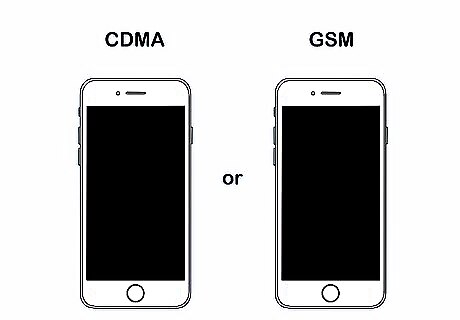
Determine your phone's cellular type. There are two main cellular standards—CDMA and GSM—that dictate which carriers your phone can use. Your current carrier's hardware might not work with another carrier, so it's important to know who made your phone and who else can use it before continuing. If the phone was manufactured as an unlocked phone, you'll need to figure out which type of phone it is before proceeding.
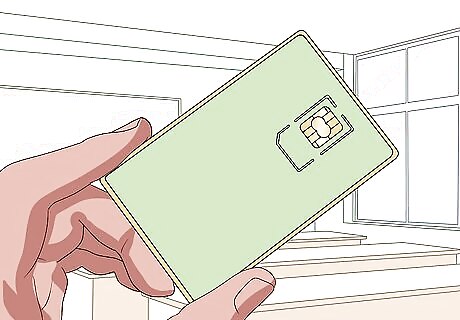
Buy a SIM card for your preferred carrier. You'll need a SIM card to operate on that carrier's network. The best place to buy a SIM card is from that carrier's store, since they can help set you up with the correct SIM card for your phone.
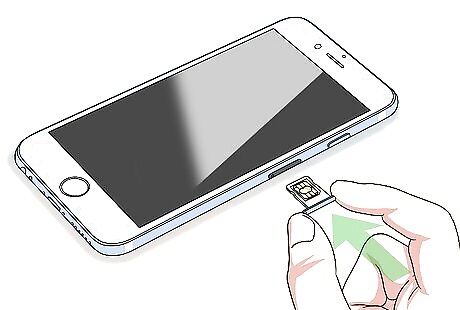
Insert the new SIM card into your phone. This process consists of turning off your phone, removing the current SIM card, inserting the new SIM card, and turning back on your phone.
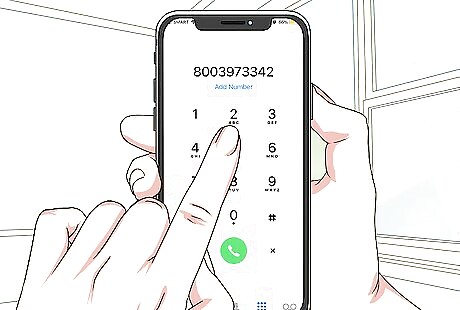
Enter the unlock code. When your phone finishes restarting, you'll be prompted to enter the unlock code. Once you enter this code, your phone will officially be unlocked. Some phones will require you to unlock the screen by entering your passcode before you can unlock the phone itself. If your unlock code doesn't work, contact your carrier.
Through a Paid Service
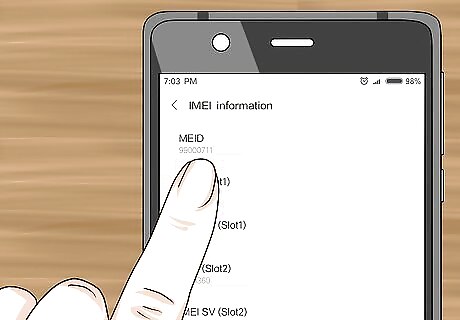
Check your phone's IMEI number. To receive an unlock code through a third-party service, you'll need to enter your phone's IMEI (or, in the case of some CDMA phones, MEID) number. To find the IMEI number: iPhone - Open Settings, scroll down and tap General, tap About, and find the "IMEI", "MEID", or "ESN" number. Android - Open Settings, scroll down and tap About phone, tap Status, and find the "IMEI", "MEID", or "ESN" phone.

Find a service. There are plenty of companies online that will sell you the unlock codes for your phone for payment. These services often operate in a legal grey area, so be sure to find a service that is legal to use in your region. Avoid any site that will claim to unlock your phone for completing surveys or offers. These are often scams designed to gather as much personal information about you as possible. Never use an unlock service whose address doesn't have https:// before the "www." part of the address.

Research your choice. Before paying any company to unlock your phone, research the company as much as possible. Find user reviews, and ask around in phone enthusiast forums. Always be wary of potential scams, especially when you are paying to skirt your carrier's policies. Many web browsers, such as Google Chrome and Safari, will alert you if a website is profoundly unsafe.
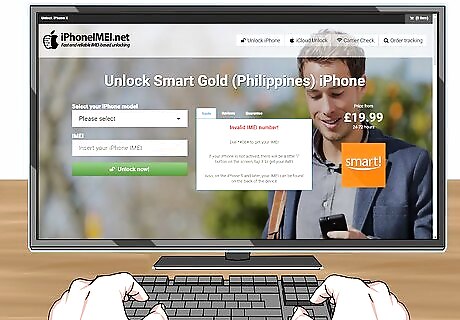
Enter your IMEI number. In the site's "unlock" section, type in your phone's IMEI number and press ↵ Enter. Your selected service may require other information as well. Some services require you to create an account with them before you can retrieve an unlock code.

Pay for the service. When prompted, input your payment information. Carrier unlock codes run anywhere from a few dollars to over $20. Be sure to select all of the correct information about your phone so that you get a code that works. If possible, use a service like PayPal or Venmo to pay for the unlock code.
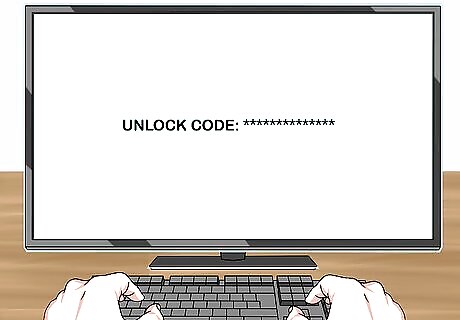
Retrieve your unlock code. It can take several hours to several days for you to receive your unlock code, though some services will display it for you immediately after entering payment information. Once you have your code, you can proceed with unlocking your phone.
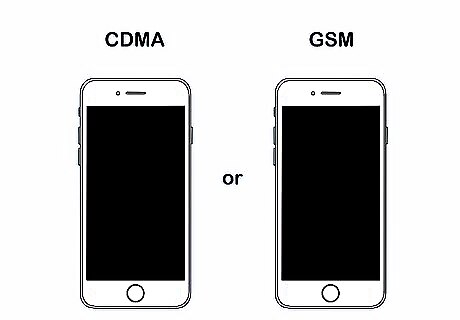
Determine your phone's cellular type. There are two main cellular standards—CDMA and GSM—that dictate which carriers your phone can use. Your current carrier's hardware might not work with another carrier, so it's important to know who made your phone and who else can use it before continuing. If the phone was manufactured as an unlocked phone, you'll need to figure out which type of phone it is before proceeding.
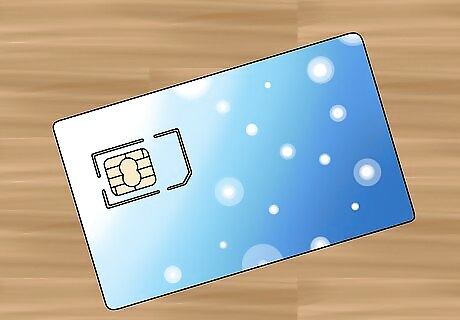
Buy a SIM card for your preferred carrier. You'll need a SIM card to operate on that carrier's network. The best place to buy a SIM card is from that carrier's store, since they can help set you up with the correct SIM card for your phone.
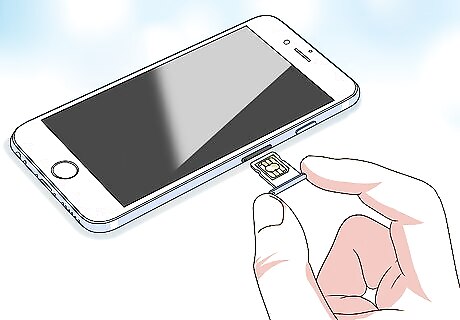
Insert the new SIM card into your phone. This process consists of turning off your phone, removing the current SIM card, inserting the new SIM card, and turning back on your phone.
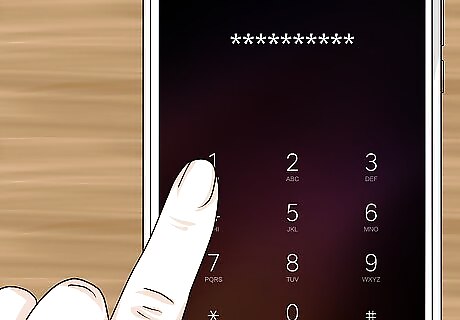
Enter the unlock code. When your phone finishes restarting, you'll be prompted to enter the unlock code. Once you enter this code, your phone will officially be unlocked. Some phones will require you to unlock the screen by entering your passcode before you can unlock the phone itself. If your unlock code doesn't work, contact your carrier.















Comments
0 comment